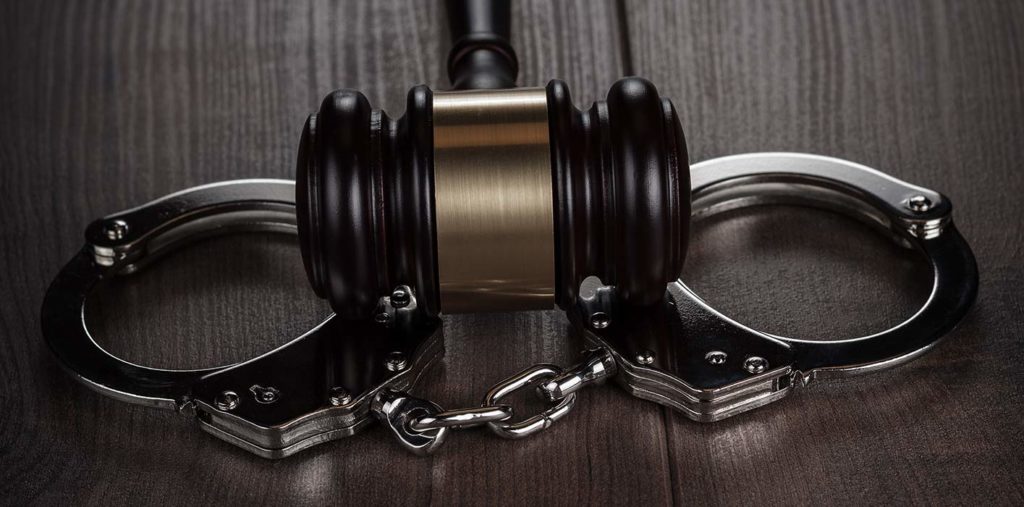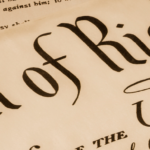Felony Arraignment and the Probable Cause Conference
A defendant charged with a felony has the right to reasonable bail and a hearing to determine if there is sufficient evidence for the case to go to trial.

The Court System and Felony Charges
In Michigan, all state felony charges begin at the district court level, and most get transferred to a higher court, called a Circuit Court. The Arraignment and the Probable Cause Conference (PCC) are the initial felony hearings in a District Court.
Felony jury trials, pleas, and sentences occur in a Circuit Court. Each county has only one circuit court. Some of the busiest Circuit Courts in Michigan include Oakland County, Wayne, Livingston, Macomb, and Washtenaw. Each county also has at least one district court, though more populated counties can have several. For example, the building that houses the Lapeer County Circuit Court also contains the sole district court in the county. Conversely, Oakland County has a circuit court and 14 district courts in several cities including, but not limited to Troy, Novi, Bloomfield Hills, Rochester Hills, Clarkston, and Royal Oak.
A misdemeanor charge will begin and end at the district court level. A felony charge will begin at a district court, but it could be sent to the county circuit court if the district judge finds at a hearing that there is probable cause to believe a felony was committed and that you are the person that committed the crime. This hearing is called a Preliminary Examination. If the judge finds the evidence insufficient to meet these burdens, they will dismiss the case.

The District Court Arraignment
When a felony warrant is issued, the defendant must go before a district court judge or magistrate for arraignment. The felony arraignment has two primary purposes. First, the judge informs the defendant of the actual charges against them and the maximum possible jail or prison sentence. Second, the court needs to determine the bond. Bond is an assurance that the defendant will return to court and not be a danger in the community. A bond may require the posting of money. A personal bond, usually reserved for low severity cases or defendants represented by a lawyer, can require only a promise by the defendant to return to court. If the judge determines that money must be posted before the defendant is released. The amount of the bond depends on a multitude of factors. You must have an experienced attorney at this stage to argue for a personal bond or a low cash bond. Failure can be devastating and result in the defendant remaining in jail while the case goes through court. Once the arraignment is complete, the next hearing is called a probable cause conference.
The Probable Cause Conference (PCC)
What is a probable cause conference? The PCC is part of the beginning of a felony prosecution. A PCC has many potential pitfalls; however, a defendant might have opportunities to better his chances of getting a favorable outcome. The PCC is the first formal opportunity for the prosecutor and defense attorney to discuss the case in court. To guarantee the best possible outcome, it helps if you begin on the right foot with a seasoned and successful criminal defense lawyer. The district court judge will want to know if the defense or prosecution is requesting a preliminary examination. Decisions regarding whether to file motions, whether to seek the suppression of evidence and what evidence must be collected or preserved may need to be made at this very important hearing.
The hearing after a PCC is a Preliminary Examination. You can read more about preliminary examinations by following this link.

When to Call an Attorney?
The decision to hold or waive the exam is made at the Probable Cause Conference. This decision is important and can set the stage for how the balance of the case is handled and whether a defense is successful. To make the best decision possible, you must consult and work with an attorney who has a track record of winning and knows the law, the prosecutor, and the court. The attorneys at LEWIS & DICKSTEIN, P.L.L.C. have decades of experience handling felony cases in Oakland County, Macomb County, Wayne County, and throughout Michigan. They know when the prosecution should be compelled to hold an exam when it is not beneficial to the client and the details the client must consider throughout a felony prosecution. We will take the time to talk with you, answer your questions, and ensure you have a good understanding of your case and your defense.
The best way to handle a felony charge is to begin the process with an experienced legal team in your corner, protecting your rights and guiding you through the complicated process that begins with the arraignment and probable cause conference.
Call us today at (248) 263-6800 for a free consultation or complete an online Request for Assistance Form. We will contact you promptly and find a way to help you.













